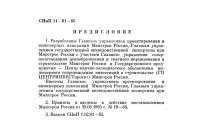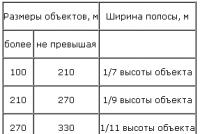Economic resources and their types. What is a resource? What are resources what are the resources
Economic resources are all types of natural and human capabilities that are used for production in order to satisfy needs.
Creates countless different goods - services and products. Therefore, the amount of resources used must be as huge as the volume of production. In essence, economic resources, which are also called, represent various goods that are used to produce other goods. All of them are combined into several large groups. Let's take a closer look at them.
Economic resources and their types
This name brings together all types of fossils, land areas, forests, water, flora, fauna, climatic and recreational opportunities.
Natural economic resources are involved in economic activities in different ways:
As the operational basis of production, they represent the immediate territory on which the production facilities are located;
They are used as sources in the extractive industry;
As objects of production activity, they are represented in agriculture.
Land is a limited and almost irreplaceable resource, so it needs careful attention from users and government protection. More than six million hectares are withdrawn from agricultural circulation in the world due to neglect of land. At this rate, in two and a half centuries, mankind is in danger of losing all land suitable for agriculture.
This type of resource covers people who are employed in production (economic) activities. Despite technical progress and automation, the role of labor in the production process does not diminish in the least. The reasons for this, firstly, in the complexity of the tasks that are solved in modern production to meet growing needs. Secondly, work becomes more and more intellectual, that is, mental efforts are growing. Thirdly, in many areas of activity there are high risks and responsibilities - for example, in nuclear energy, air transportation, etc.
Since people are the direct bearers of specific technical and organizational knowledge and skills, culture, it is now generally accepted that labor economic resources are not only labor, but the whole human capital, which reflects the level of development of workers.
3) Capital.
This type of resource includes (equipment, machinery, tooling, transport, buildings and structures) and financial opportunities (funds that banks and individuals dispose of, giving them for use in the form of loans and investments).
4) Entrepreneurship ability.
These economic resources are segregated from others in a separate category and represent the ability to start a profitable business and manage it effectively. Not every person has a natural aptitude for entrepreneurship, so not everyone can become successful businessmen. Successful, in addition to knowledge of production technologies, also presupposes developed intuition, communication skills and persuasion.
5) Information.
Information economic resources include knowledge about needs, capabilities, production and management technologies, prices, etc. In today's society, the following principle is fully implemented: he who owns information owns the world. Therefore, it is called the information society. Computer technologies, network systems for data storage and transmission are of decisive importance now.
A resource is something with which a variety of human needs can be satisfied. This article will discuss the origin of the term, as well as the main types of resources.
A resource is ... Etymology of the term
This term is of French origin. It is based on a modified form of the verb surgere ( to rise) and the prefix re-. What is the essence of this concept?
A resource is a stock of something that can be used to meet the specific needs of a person or society. Ressource - this is how this word looks in the original (in French).
The most apt synonym for the word "resource" is "stock". Also, the following words can be synonyms of this term in a certain context: "source", "income", "means", "reserve" and some others.
Main types of resources
The main types (classes) of resources include the following:
- natural;
- economic;
- labor (human);
- financial (or banking, budget);
- administrative;
- informational;
- energy, etc.
In addition, any of the resources, depending on the conditions of its use, can be primary or secondary.
Natural resources are all objects, substances and phenomena that the population of a certain territory (country, region, region) uses in order to produce various goods, products and services. These include water, atmospheric air, solar energy, minerals (oil, gas, coal, iron ore, etc.), soils, biota (flora and fauna).
Natural resources can be finite (eg oil) or inexhaustible (air), renewable (fresh water) or non-renewable (eg granite).
One important law should be mentioned. He says that all resources are limited, but human needs are, in fact, unlimited. It is precisely this sharp contradiction that the economy is called upon to solve.

One of the tools for solving such an important problem is the rational use of resources (or rational use of natural resources). Its essence is to use any resource with the maximum benefit for people and with minimum harm to environment... For example, you can organize a sawmill in a forest area and harvest logs. And you can also build a small industrial complex nearby, which would produce chipboard (chipboard) from sawdust. Thus, a specific resource (forest) will be used more rationally.
Human resources are an important factor in economic development
Many of the economists argue that human resource is the most valuable asset of any production. So, according to Valery Gabrielyan, this is capital, investments in which will be repaid a hundredfold. It is not difficult to prove this statement. Just look at countries like Japan, Singapore or South Korea. Lacking significant natural resources, they were able to achieve success precisely due to effective use human resource.

Modern production processes are highly technological and sophisticated. Therefore, they require significant investments in the training of professional personnel. Experience shows that the most successful companies (enterprises) are those in which a stable and experienced workforce is formed that knows its tasks and performs them effectively.
Finally...
Translated from French, "resource" is the "source" (or "stock") of something. IN economic theory this term, as a rule, means everything that can be used for the production of specific goods. And among all types of economic resources, a special place belongs to human (or labor) resources. Without them, none of the modern states can be successful.
A resource is a quantitative measure that expresses the presence of certain opportunities (for example, financial) for the implementation of a particular activity. Let's take a closer look at what resources are in specific options.
Natural resources
This term means various objects and forces of nature that man uses to maintain his existence on the planet, to satisfy needs.
Among the components of natural resources are:
- Land resources - land that can be used for agricultural needs, creating parks, arranging roads, erecting various buildings on it, etc.
- Water resources - water reserves required for consumer, industrial needs, transport links, hydropower tasks, etc.
- Forest resources - forests used for sanitation, raw materials and other purposes.
- Biological resources - all living elements of the biosphere that have a certain habitat and genetic base. These are various animals and plants, fungi and bacteria.
- Energy resources are different types of energy. Nuclear, fuel, solar and space, as well as energy of wind, water, etc. The energy of the sun, together with wind energy and air humidity in some classifications refer to the climatic resources of nature.
- Mineral resources are various minerals that people use in the national economy. They can be solid (ore, salt, coal, etc.), gaseous (methane, combustible gases, etc.), liquid (mineral water, oil).
These resources can be exhaustible and inexhaustible, replaceable and irreplaceable, recreational, industrial or potentially promising.
Economic resources
This type of resource combines material and non-material means necessary for social production aimed at improving human life and making a profit.
The following components of economic resources are distinguished:
- land (various natural resources);
- human labor;
- capital (property that is used to make a profit);
- information;
- time;
- entrepreneurial ability (the ability to effectively organize the process of social production that would bring income).
Material and technical resources
In simple words, given view resources can be defined as a set of instruments of labor (various machines, equipment, tools) and processed, processed with their help objects of labor (fuel, raw materials, materials, etc.).
Administrative resources
This term means the influence that officials, politicians, government agencies, officials have on certain spheres of activity.
Administrative resources are divided, first of all, into legitimate (when the impact is determined by the legal powers of persons) and illegitimate (when politicians, officials and other persons influence different spheres of life, without having a legal basis).
Informational resources
This concept is used to define the array of all available data, collected so that at any time you can get complete reliable information about something.
Information resources include:
- archives;
- information funds;
- libraries;
- data banks;
- internet information.
The network of these resources is very extensive and includes both the data that is stored in national bases data as well as the information held by each individual institution and even each individual.
Computing resources
Indicators of a computing system that are consumed in the course of its operation are called computing resources. These include:
- rAM (responsible for the performance of the equipment);
- virtual memory (allows you to use more memory than your hardware, computer);
- hard disk capacity (determines the ability of computing equipment, computer to store a certain amount of information);
- network bandwidth (the rate at which a system of computing equipment or computers transfers a given amount of information from one point to another);
- processor time (the time that the processor spends on a particular task).
Resources are sources, supplies, means and prerequisites necessary for human life. In everyday life, it is energy, emotions and so on. A related concept is.
Resource types
Resources are
- recoverable and not. Partially belongs to irreplaceable resources.
- external (money, time) and internal (health, energy - see Resource state)
Resource usage
Resources can be spent, or you can invest, you can earn them on your own and honestly, at the expense of others (see Ways of Human Life).
This is the misuse of resources, spending, destruction of resources. Close: A muddler is one who distributes goods cheaply.
Contribution is the use of resources aimed at achieving a certain result (as an option, at restoring this or another resource).
He cares about his own, but not about someone else's. Ready to replenish his own, but to the extent that he needs it. Excess resources are spent on entertainment and pleasure.
Romantic. Usually he has no resources, because there is nothing to get them from. If suddenly resources fall into his hands - he spends it thoughtlessly, often on the noble impulse of his soul all at once. After such spending, the problem remains, but the resources do not.
He invests all resources: in himself and other talented people next to him. Each contribution must work, from each contribution there must be an effective result - this is the main criterion important for the Creator.






